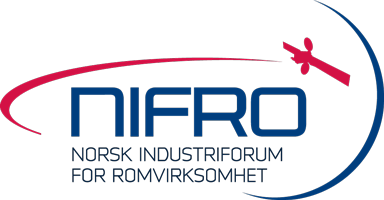Dordije Bošković from NTNU wins the 2020 NIFRO-award

Every year, NIFRO and NAROM award the NIFRO award for the best space-related Master thesis in Norway. The winner is announced at the annual space industry dinner in Oslo and is awarded 20 000 NOK. The winner of the 2020 NIFRO award is Dordije Bošković from NTNU. We had a chat with him to learn more about his motivation and work.
First of all, could you briefly introduce yourself and what you studied?
I have earned my bachelor’s degree from the Faculty of Electrical Engineering, University of Montenegro, at the department of Electronics, Telecommunication and Computer Engineering. Afterwards, as the best student at the department, I was awarded Erasmus Mundus scholarship to study at two universities, namely, University of Southampton, UK and Norwegian University of Science and Technology in Trondheim. That is the brief history of how I got to study at NTNU and do my thesis at the SmallSat lab.
How is the “student space environment” at NTNU? What attracted you to study here?
As students at NTNU get to choose their specialization projects during the second year of their master’s degree, I also had a variety of topics to choose from in the fields of embedded systems and digital electronics in general. An opportunity to work at SmallSat lab stood out, and I decided to get into the space projects at the university, where I have stayed for my thesis as well. At the SmallSat lab it is possible to experience and be involved in a wide variety of scientific areas from mechanics, to electronics and programming, making it a great interdisciplinary approach to solving space-related problems.
Could you describe the topic of your thesis and key findings?
My master thesis titled “Hardware implementation of a target detection algorithm for hyperspectral images” is an exploratory work concerning topics such as hyperspectral remote sensing and FPGA design for the HYPSO payload. Hyper-Spectral Imager for Oceanographic Applications (HYPSO) is being developed at the SmallSat laboratory at NTNU, with the main goal to launch and operate the satellite capable of capturing and processing of hyperspectral images. The satellite will have a customized payload with Zynq-7000 on-board processing system consisting of ARM-based processor and programmable logic (FPGA). This will allow almost instantaneous image processing, with the possibility of real-time operation and control of combination of other vehicles in the HYPSO constellation. As hyperspectral images obtained by imaging spectrometer contain a vast amount of data, they require techniques such as target detection to extract useful information. The thesis presents implementations of target detection algorithms for hyperspectral images. Oceanographic phenomena are of great interest to understand more about the effects of climate change and human impact on the world, which is the main motivation for the HYPSO project. This also motivated me to join the team and help tackling the world-changing challenges.
What was the most challenging and most rewarding experience associated with the work of writing your thesis?
As I have not been introduced to hyperspectral imaging prior to the specialization and thesis work, it has been a challenging learning experience, but also a gratifying and rewarding practice which has greatly improved my research skills. It is particularly enjoyable to solve challenging technical problems with a whole team of engineers and scientists with a common direction to achieve a goal. This helps to constantly learn new things and interface with engineers of a wide variety of subspecialties.
During my thesis I have also presented my first conference paper titled “HW/SW Implementation of Hyperspectral Target Detection Algorithm” which was awarded as the best student paper at MECO conference on embedded computing.
How do you see the future, will you now pursue a career in the space sector?
For now, I am not working in the space sector, but who knows what the future will bring. I will continue to do the things that are fulfilling me, and if that leads me to the space sector again, I will be happy to embrace it. I am personally excited to see the future innovation and challenges, both in Norway and elsewhere.
NIFRO congratulates Dordje on his excellent work, and look forward to following him in the future. If you are writing a space-related master thesis we encourage you to enter the 2021 competition. You can find more information about the NIFRO-award by clicking on the links below.
Norwegian: https://nifro.no/nifro-prisen/
English: https://nifro.no/en/nifro-award/
